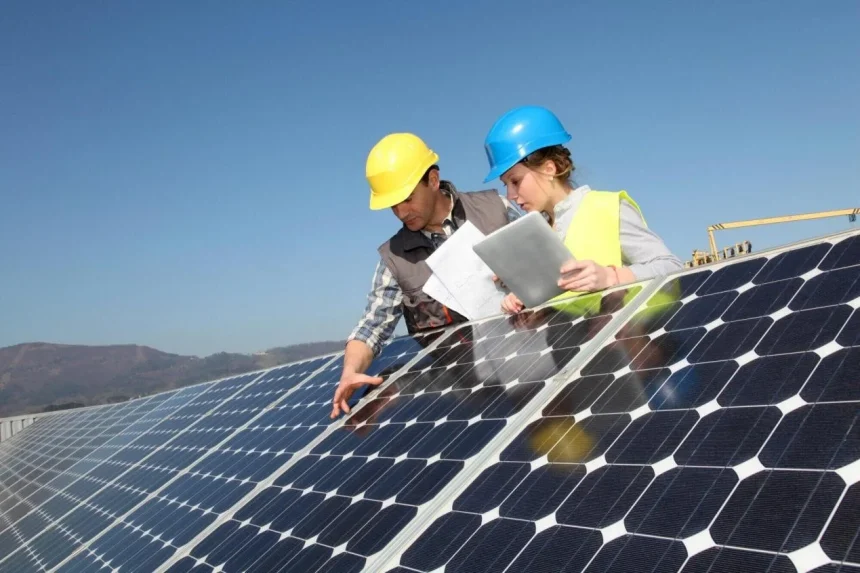Industrial solar panels are revolutionizing the way we harness energy. As the demand for sustainable solutions rises, understanding their environmental impact is paramount.
Are industrial solar panels truly green, or are there hidden costs? From manufacturing to disposal, every stage holds significance.
This blog will uncover the true environmental footprint of sustainable energy solutions. Learn what you, as a consumer, can do to support a greener future. Keep on reading to make informed choices and benefit from renewable energy.
Understanding Solar Energy
Solar energy is a way to use the sun’s power to create electricity. It’s different from fossil fuels, which can pollute the air and contribute to climate change. Solar energy is clean and doesn’t release harmful emissions.
Solar panels can be placed on many surfaces, like roofs, making them useful for homes and businesses. This makes solar energy important in helping to fight climate change and reduce pollution.
Production of Solar Panels
Making industrial solar power involves many steps, like getting raw materials and putting the panels together. Although these steps can impact the environment, solar panels help reduce emissions over the long run.
A key issue is the energy needed to make photovoltaic (PV) cells, which are the heart of solar panels. But, as technology improves, making solar panels is becoming more eco-friendly.
Lifespan and Efficiency
Modern solar panels last a long time, often over 25 years, and need very little maintenance. They produce a lot of clean energy, making up for any environmental costs of making them.
Solar panels have become more efficient, meaning they can convert more sunlight into electricity. These energy efficiency upgrades mean you need fewer panels to generate the same amount of power, saving space and resources.
Waste and Recycling
When solar panels reach the end of their life, they can create waste. The materials in the panels, like silicon, glass, and metals, need to be taken apart and recycled properly to protect the environment.
Right now, we can recycle a lot of these materials, but we need to get even better to eliminate waste. Encouraging recycling programs for the whole industry is important for the safe disposal of solar panels.
Economic Benefits
Investing in solar energy is good for the environment and saves money. Solar panels can lower electricity bills and pay for themselves over time.
Government incentives and tax credits make it even more appealing for homeowners and businesses. Plus, the solar industry creates jobs in making, installing, and maintaining solar panels, which helps the economy and supports green jobs.
Choosing the Right Provider
If you’re thinking about getting solar energy, picking a good company is very important. Look for a top-rated solar company in Portland or where you live to make sure you get quality service.
A good company will help you from the start to the end, making sure your solar panels work well. This way, you get the most out of your investment and help the environment too.
Why Choose Industrial Solar Panels for a Sustainable Future
Solar panels for businesses are an important part of making the future sustainable. By using renewable energy and lowering emissions, they do a lot to help the environment.
Even though there are some problems with production and disposal, the overall effect is very good. People can help the environment by picking providers they can trust.
Solar panels for factories are good for the environment and the economy. This is a smart choice to go green with industrial solar panels.





